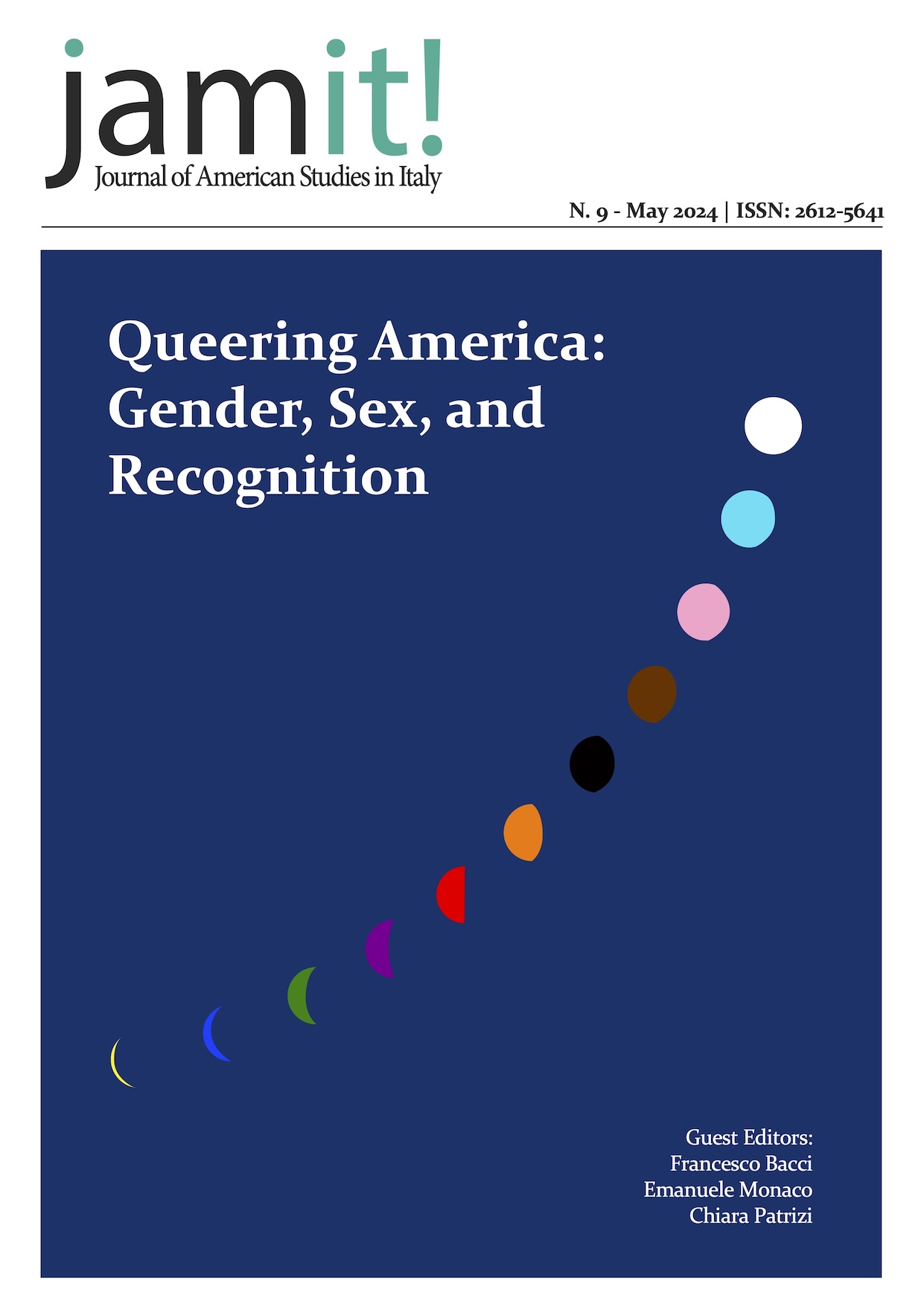The Trope of Africanism to Address Homosexuality in Giovanni’s Room by James Baldwin
DOI:
https://doi.org/10.13135/2612-5641/7660Nøgleord:
homosexuality, queer, Africanism, self-identity, libertyResumé
In the preamble to the Declaration of Independence “Life, Liberty, and the Pursuit of Happiness” are described as being unalienable rights of people and moreover, they constitute the core of the American national ethos: ‘the American Dream’. Nevertheless, full access to the plenty of potentialities inherent in this rhetoric seems to have been denied to specific categories of people, thus resulting in an endorsement of exclusivity and discrimination, when actually it should have supported inclusivity and equal opportunities to every American citizen. Especially the notion of “liberty” has historically been influenced by many socially constructed categories in the US, notably race, religious belief, gender, and sexual orientation. Therefore, the connected conceits of ‘life’ and ‘the pursuit of happiness’ couldn’t help but be reshaped by those categorizations. This despicable state of things had such a profound impact on the life and works of many authors – especially on those who closely faced an unjust set of domination and discrimination due to their ethnicity and sexuality that they publicly condemned how suffocating and hypocritical American society still was in the twentieth century. Among them stands the influential African American writer James Baldwin, a figure in which one can really feel the struggle of being labelled as both African American and homosexual by the hypochondriac white society of the US. In his second novel entitled Giovanni’s Room (1956), Baldwin deeply explored the theme of the ‘quest for self-identity’ in connection with the theme of sexual orientation. Thus, the aim of this paper is to investigate how – and why – Baldwin makes use of Africanist, or Africanlike, characters (e.g., the Italian immigrant Giovanni) to explore topics that otherwise would have been taboo, which means homosexuality and even bisexuality in the American society of the 1950s. In particular, the analysis will rely on the seminal work of literary criticism Playing in the Dark: Whiteness and the Literary Imagination (1992), by Toni Morrison, who greatly examined the peculiar use of black characters in American literature for the first time.
Downloads
Publiceret
Nummer
Sektion
Licens
Authors who publish with this journal agree to the following terms:
- Authors retain the copyright and full publishing rights for their submissions to the journal.
- Authors grant the journal right of first publication with the work simultaneously licensed under a Creative Commons Attribution-NonCommercial-NoDerivatives 4.0 International License that allows others to share unedited work for non-commercial purposes with an acknowledgement of the work's authorship and initial publication in this journal.
- Authors are able to enter into separate, additional contractual arrangements for the non-exclusive distribution of the journal's published version of the work (e.g., post it to an institutional repository or publish it in a book), with an acknowledgement of its initial publication in this journal.
- Authors are permitted and encouraged to post their work online (e.g., in institutional repositories or on their website) prior to and during the submission process, as it can lead to productive exchanges, as well as earlier and greater citation of published work (See The Effect of Open Access).




